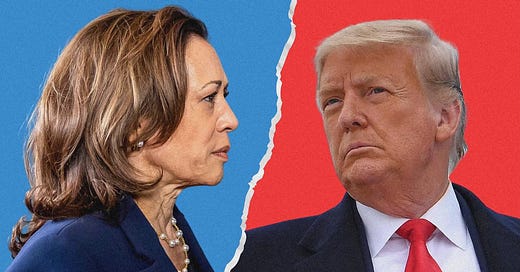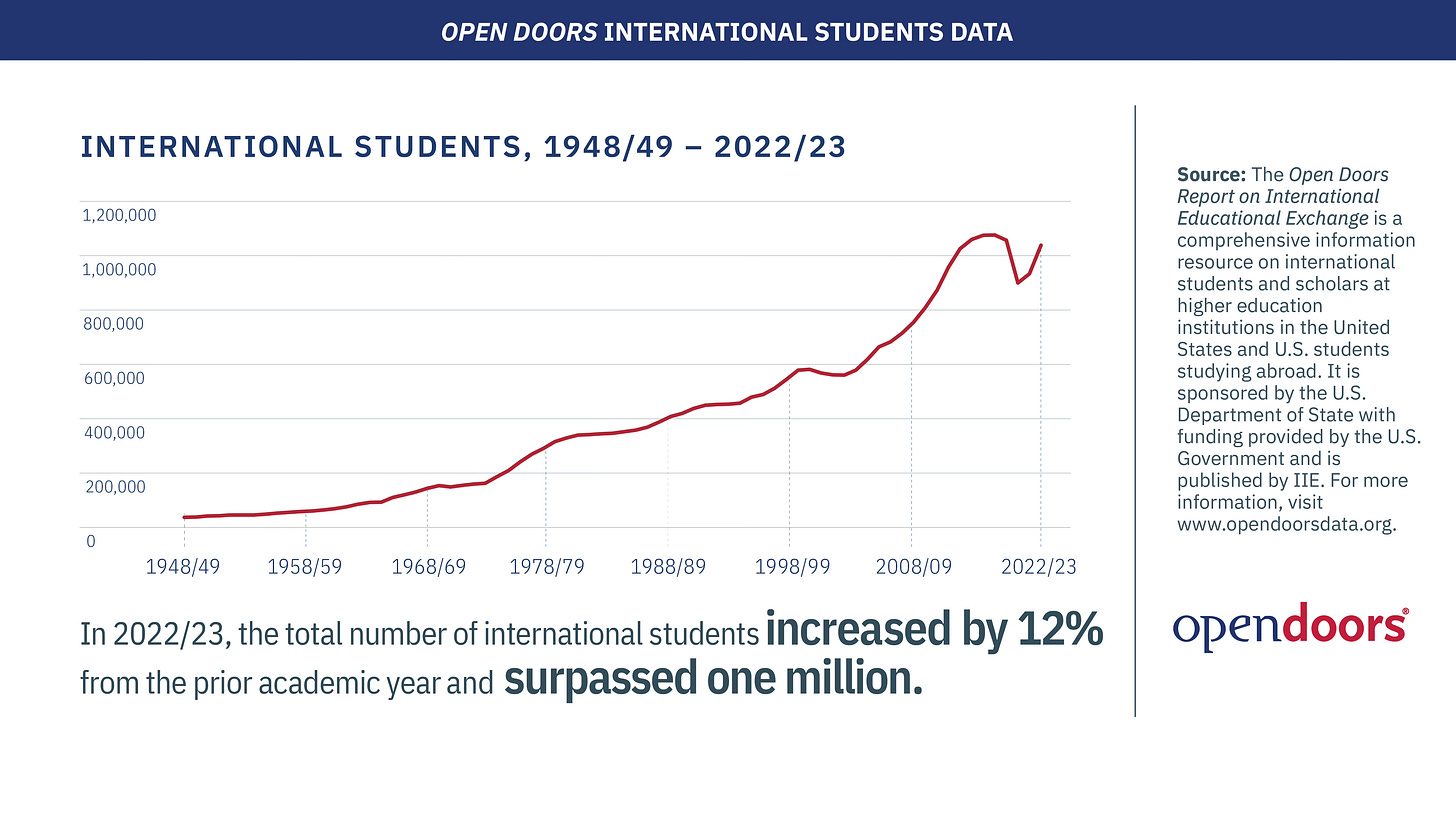Degrees of Separation - Why Are International Students Unfased by the U.S. Election?
Despite the hype, a new survey shows that international students are indifferent to the U.S. Election results. Here's why.
As we round the corner into November, it would seem that all of Canada is consumed with thoughts on the upcoming U.S. election.
Not so with international students, it seems.
According to a new study released by Intead and Studyportals: “many students remain indifferent to who is in the US White House when making their personal decisions about their education”. Data collected from over 3,500 student respondents indicated several shockingly indifferent attitudes.
First, it would seem that student respondents do have very strong views on presidential candidates. For example, in the first cohort of participants, a quarter of all open-ended responses were categorized as “emotional in nature”, with 2 in 3 students expressing pro-Biden sentiments, and the remaining 2 in 5 pro-Trump. A further 12% of free text responses from survey participants described Trump as either racist or racially biased.
Second, despite strong statements regarding personal preferences for presidential candidates, nearly half of all international student respondents (43%) suggested that the U.S. president holds no influence over their decision to study in the States.
Finally, as shown below, student respondents reported that regardless of who was elected, the U.S. president held minimal influence on their decision to study in the States. Only 17% of students indicated that they were more likely to study in America under a Harris administration (versus a Trump regime), with nearly 2 in 5 suggesting they had no clear preference for either presidential candidate.
It would seem these findings do tend to fall in line with international student numbers in the U.S. In 2022-23 alone, the U.S. welcomed a new 40 year record number of international students — an annual increase of 12%, totalling just over 1 million total students. Graduate students in particular were among the highest represented (proportionally), showing an incredible 21% annual increase that year, along with students choosing major study fields, including STEM (55%), computer science and math (23%), and engineering (19%).
In fact, historically, there has been no significant dip in enrolments (excluding COVID-19) — for any presidential candidate — since the late 1990’s, including the election of Trump (2016) and Biden (2020).
And these enrolment numbers don’t seem to be slowing down anytime soon.
A new analysis completed by HolonIQ projected four growth scenarios for international student numbers in the U.S. over the next 10 years. According to the authors, the most likely possibility was a 4.6% annual growth rate by 2034 — which would mean 1.8 million international students that year.
There may be many factors to why international students continue to choose the U.S. for their higher education: strong federal investment in research, the highest research publication output in the world, world class post-secondary institutions, robust business-driven research and development partnerships and opportunities, …the list is long.
However, there may be a new cause for concern for international students: the rise of culture wars being used to target American higher education. The infamous Project 2025 calls for a laundry list of measures that the federal government could enact — which would significantly impacts on American higher education, including (just to name a few):
Removal of the federal government student loan program, which would include Parent Plus loans, income-based repayment programs, and loan forgiveness. Some analysts project this would cost students an additional $250 billion in student loan debt.
Limiting which topics can be taught in post-secondary classrooms & laboratories
Eliminating the Department of Education
Having States remove the current system of impartial, independent post-secondary accreditors in favour of politically-pliable alternatives.
Ending Title IX protections for LGBTQI+ students
While the common perception (as shown by the data) from international students is that American politicians and/or politics have little impact on their studies in the U.S., these proposed changes certainly would. And that’s directly from one of the candidates currently running for the top job.
All this to say, international students planning to study in the U.S. don’t care about its politics….but maybe they should.









